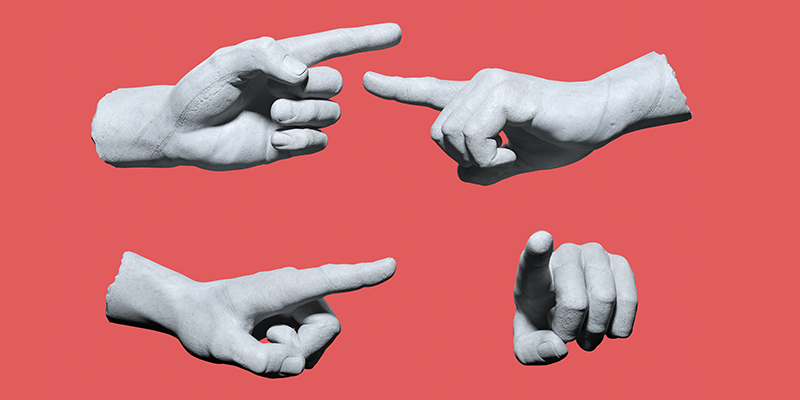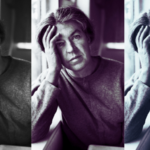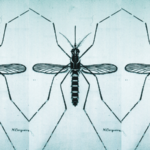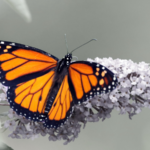I started writing my second novel, Like It Never Happened, at the beginning of 2020. It started, as all stories do, with a handful of characters and an inciting incident. In this case, four eighteen-year-old boys get in a fight with two strangers in a parking lot. They kill one boy and incapacitate another. They get away with it, but they argue about what to do next. Their friendship shatters, and they lose touch. It usually takes a fair distance into a story—after I learn what happens—before I start to get a sense of what it’s about. As I churned out words and pages and chapters, Covid crept toward us and then engulfed us, and my story that began with violence drifted toward secrets and lies and blame.
*
From the beginning, we all searched for someone to blame for Covid and the way it upended our lives. The second semester of my son’s senior year of high school was effectively cancelled. His freshman year of college went online. My special needs daughter, who was living in a residential treatment center, was sent home just a little bit before she was ready. It became difficult to connect with family and friends, and like everyone else, we lost the illusion of control over our lives that we’d spent so much time and energy cultivating.
As the pandemic lockdown stretched from weeks into months, I met some friends one evening in a park along the bike path. We stood six feet apart—eight middle-aged men drinking beer that we had pulled from our backpacks like teenagers. We quickly exhausted the few topics at hand—the fruitless search for toilet paper, remote work, too much time with our immediate families. The discussion turned toward who to blame. We cycled through the usual suspects from that time: China, the president, the CDC, Bill Gates even. We were all unsettled and uncertain and worried about what would come next. Some demanded accountability, even if they didn’t know exactly what that meant, or what that would get them, or from whom they were demanding it.
*
I open the novel when those four boys are approaching fifty, and they are all chafing against that night so many years ago, grasping for that sense of control we all crave so much. When the most troubled of the four dies, the other three see each other for the first time in thirty years at the funeral. They also meet the dead man’s wife. They learn that she’s a reporter, and that she knows everything. She blames them for her husband’s chaotic life and for his death, and she’s determined to make them pay, to hold them accountable. But what is accountability?
I wrote Like it Never Happened in close third person with a rotating point of view. The story studies the same terrible event and, more importantly, its aftermath, from a variety of angles. That choice allows the reader to see how that night in the parking lot affected each of those men and how their lack of accountability damaged their families. Most importantly, it allows the reader to blame and then forgive each character as the story shifts from one subjectivity to the next.
As I wrote, the pandemic wore on all of us, and we started to blame each other. Some of us blamed too few masks or vaccines or distance while others blamed shutdowns and vaccines and masks. Each according to their point of view, but we all found someone or something to blame. Too few of us held ourselves to account.
What’s the difference between accountability and blame? They seem like twins at first, all but identical. But when you study them, subtle differences emerge. Blame leans toward accusation, the assignment of fault. It drives conflict, division, and polarization. Accountability, on the other hand, represents the acceptance of responsibility. It leads toward learning, and it implies a willingness to collaborate and to grow and to change. Viewed through this lens, demanding accountability seems a bit like demanding friendship. Examined closely, blame and accountability seem like distant cousins at best.
*
My daughter, who struggles with much, added online high school to her anxiety inventory when she came home at the beginning of Covid. Her anxiety often leads to crisis and sometimes violence. She sat at the dining room table in front of her laptop trying to hold it all together. I sat across from her at my own laptop wearing a set of noise-cancelling headphones so that I could get some words written, trying to move the story forward. Even as I worked, I watched her. I waited for the telltale signs that, if left unchecked, might throw our home into chaos. It was my responsibility to step in when she became overwhelmed and to help her deescalate. I took the headphones off to listen to the quadratic equation lessons, because I had forgotten anything that I had once learned about quadratic equations, and because helping her through her algebra homework was also my responsibility.
We were still in lockdown the night that my son’s cancelled prom was supposed to take place. I heard him shouting to nobody in the basement, venting his frustrations like everyone. I went downstairs and asked him if he’d like to play cards. He shrugged, mumbled something that might have been the word Fine. I went back upstairs for the cards and a twelve-pack. Extraordinary times call for extraordinary measures, and responsibility takes many forms.
Responsibility is certainly accountability’s sibling. Taking responsibility for our actions. Taking responsibility for the wellbeing of others. As the pandemic wore on, I realized that responsibility and accountability aren’t negative words, that they are filled with agency and possibility. They aren’t related in any way to blame—they aren’t even the same species.
*
When you read a novel with a crime at its core, you want to see justice served, the guilty punished. But I wanted more than that for my characters. It wasn’t enough for others to demand accountability from them. I wanted them to hold themselves accountable. I wanted to see them seize it and begin to repair their broken relationships.
The pandemic got much more difficult before it became easier. Like everyone, I learned a lot from the experience—about patience and endurance and centering myself in stillness. I learned what I could reasonably expect from others and what I shouldn’t. I learned, both on the page and off, that accountability isn’t a punishment for a transgression, but a choice. If my characters damaged their relationships by dodging accountability, I could strengthen my own when I chose to embrace it.
***


















